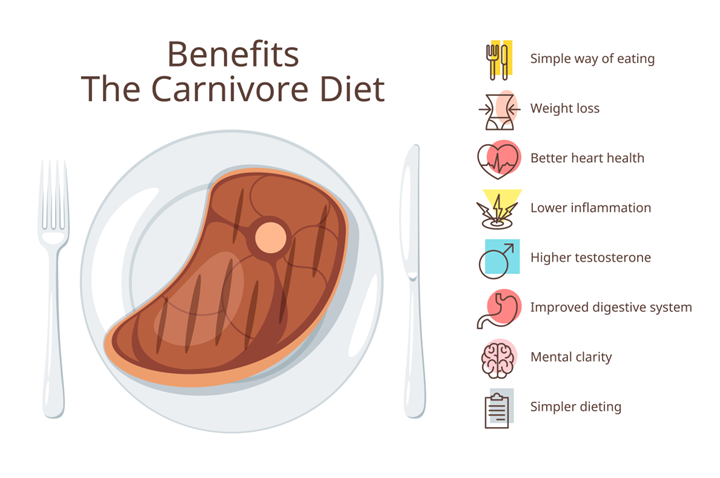

Embarking on Carnivore Wellness: Unveiling Diet Benefits
The Carnivore Diet, centered around animal products and excluding plant-based foods, has gained attention for its unique approach to nutrition. In this exploration of Carnivore Wellness, we delve into the principles, advantages, and considerations of this animal-centric dietary strategy.
Principles of the Carnivore Diet
The foundation of the Carnivore Diet lies in its exclusive focus on animal products. Followers consume meat, fish, eggs, and other animal-derived foods while excluding plant-based foods, grains, and carbohydrates. The diet relies on the nutritional density of animal products to meet all essential nutrient requirements.
Nutrient Density and Bioavailability
Carnivore Wellness hinges on the nutrient density and bioavailability of animal-based foods. Meat, particularly organ meats, is rich in essential nutrients like vitamins, minerals, and amino acids. The body can efficiently absorb and utilize these nutrients, contributing to optimal health and well-being.
Potential Benefits for Weight Management
One notable advantage of the Carnivore Diet is its potential for weight management. The high protein content in animal products promotes satiety, helping individuals control their caloric intake. Additionally, the absence of carbohydrates may contribute to the body utilizing fat stores for energy, potentially supporting fat loss.
Improvements in Mental Clarity and Focus
Some proponents of the Carnivore Diet report enhanced mental clarity and focus. While individual responses vary, the elimination of certain plant compounds and the focus on nutrient-dense animal foods may contribute to cognitive benefits for some individuals.
Blood Sugar Regulation and Insulin Sensitivity
The Carnivore Diet has been associated with improved blood sugar regulation and insulin sensitivity. By excluding carbohydrates, particularly refined sugars and starches, the diet minimizes spikes in blood sugar levels. This can be beneficial for individuals seeking to manage or prevent conditions like insulin resistance and type 2 diabetes.
Potential Challenges and Considerations
Despite its potential benefits, the Carnivore Diet presents challenges and considerations. The exclusion of plant-based foods may lead to potential nutrient deficiencies if not carefully planned. Individuals considering this diet should be aware of the need for adequate micronutrient intake and consider supplementation if necessary.
Support for Autoimmune and Inflammatory Conditions
Some individuals turn to the Carnivore Diet for its potential impact on autoimmune and inflammatory conditions. Proponents suggest that by eliminating potential trigger foods and focusing on animal products with anti-inflammatory properties, the diet may provide relief for certain individuals. However, more research is needed to substantiate these claims.
Individual Responses and Customization
The effectiveness of the Carnivore Diet can vary among individuals. Factors such as genetics, metabolic health, and personal preferences play a role in how the body responds to an animal-centric diet. Customization is key, and individuals may need to experiment to find the dietary approach that aligns with their unique needs and goals.
Carnivore Diet Benefits for Athletic Performance
Athletes exploring the Carnivore Diet often highlight improvements in endurance, recovery, and overall athletic performance. The protein-rich nature of the diet supports muscle maintenance and repair, and some individuals find that the exclusion of certain foods reduces inflammation, contributing to better performance.
Integrating Carnivore Wellness with CloudFeed
In conclusion, Carnivore Wellness represents a distinctive approach to nutrition, relying solely on animal products. While it may offer certain benefits, it’s essential for individuals to approach this diet with awareness and consideration of their unique nutritional needs. To explore more about Carnivore Diet Benefits and discover nutritional insights, visit CloudFeed.
